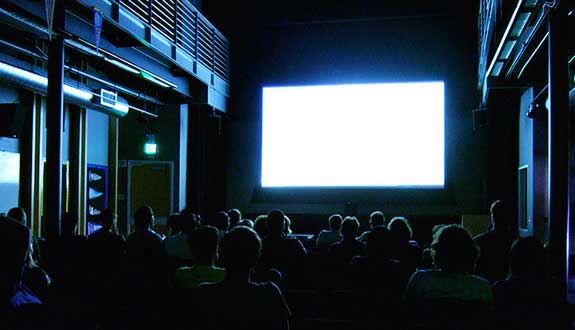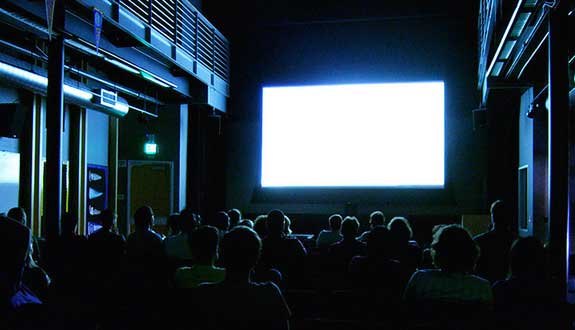The Greatest Lawyer Movies of All Time: Breaker Morant
- by
- Mar 02, 2017
- Entertainment, Legal Movies
- Reviewed by: Matt Riley


Popcorn, please.
This is the final movie I’m reviewing in my search for the Greatest Lawyer Movie of All Time (#GLMOAT #bittersweet). It’s #7 on the ABA’s Top 25, and a worthy entry for consideration.
Breaker Morant
1980 dir. Bruce Beresford
If you tried to draw a Venn Diagram of how lawyer movies fit into other genres, you’d have many overlapping circles. There are legal thrillers, legal family dramas, even legal Christmas movies. In one corner of the diagram, you’d find a “lens” where the legal and military genres intersect. The court martial seems to hold particular interest to filmmakers: see, e.g. A Few Good Men, Rules of Engagement, etc. And it’s not hard to come up with an explanation as to why. Military-legal movies combine the intrigue of two romantic institutions, the courts and the armed forces, each with its own set of elaborate and cinematic traditions and rules. When these institutions come together in a military tribunal, there’s a built-in tension: that of the rule of law pulling against the chaos of violence. It’s justice v. security, what’s right v. what’s necessary.
These themes are explored with tremendous dramatic flair in Breaker Morant, a 1980 Australian classic about three soldiers on trial for war crimes in the Second Boer War. Around the turn of the century, the British Empire deployed troops to take control of Southern Africa away from the Boers, the descendants of Dutch settlers. The Boers were eventually overwhelmed, but by using guerilla tactics, they became a very pointy thorn in the Empire’s side. A special group of fighters was assembled, called the Bushveldt Carbineers, to fight the Boers in their own way – free from old-fashioned pretentions of chivalry, with the ruthlessness and honesty of a fight to the death.
Many of the Carbineers were Australian volunteers, and one was one ‘Breaker’ Harry Morant, a warrior-poet known as the best horse-breaker in Australia. The Aussies were viewed by the British as uncivilized frontiersman, and “the Breaker” – a real person who’s given a mythic and aggressively ahistorical status in the film – is a personified rebuke to the Brits’ haughtiness. He’s a man of principle, dignity, and insight, but he also has the grit and irreverence of his down-under brethren.
Along with two of his subordinates, Morant is put on trial for war crimes after his unit goes on a killing spree. Their comrade’s life had been emphatically ended by the Boers, and Morant and his men wanted revenge. One of their victims, however, was a German priest, creating diplomatic tension and prompting the Empire to find someone to hold accountable.
In other words, the trial is supposed to be a formality. Unfortunately for the powers that be, that’s the queue for an untested, idealistic young defense attorney, Major Thomas, to enter the scene. As the trial gets under way, he quickly finds his voice and argues that the defendants were merely following orders. Moreover, he calls out the hypocrisy of chastising soldiers for not playing by obsolete rules of war.
We’ve seen debates like this play out in past lawyer movies like Judgment at Nuremberg and A Few Good Men. Indeed, the question of a person’s responsibility (especially a soldier’s) for the consequences of carrying out someone else’s orders is a difficult ethical conundrum. My own sympathies are split. Our institutions are built on hierarchies, and all too often it is those at the bottom who are punished for the institutions’ failures. Breaker Morant eloquently pleads this case: “The barbarities of war are seldom committed by abnormal men,” says Major Thomas, who served in the Boer Wars himself. “The tragedy of war is that these horrors are committed by normal men in abnormal situations. Situations in which the ebb and flow of everyday life have departed and have been replaced by a constant round of fear and anger, blood and death.” Soldiers don’t start wars, they’re consumed by them.
On the other hand, as Judgment at Nuremberg illustrated so effectively, the “just following orders” defense can be used to justify complicity with apparently any evil. High-level Nazi decision-makers did not commit genocide by themselves. If we exempt everyone following orders from personal responsibility, how many will be left to judge? A court system that permits agents of the state to carry out evil and illegal actions on behalf of their superiors does not properly do its job.
These are hard questions, obviously. And while Breaker Morant has a lot to offer – superb, snappy writing, great cinematography and editing, and a memorably dramatic finale – it doesn’t present a very even-handed discussion. The film decries scapegoating and makes a martyr of Morant, but the real ‘Breaker’ Morant was kind of a bastard who left behind a written confession. The trial was one of the first war crimes prosecutions in British history. Yet it’s presented one-sidedly as an affront to justice.
Despite the difficulty of assigning blame, given the strict hierarchies of the military and the inherent violence of war, the advent of humanitarian rules of war was a good thing. It should be celebrated. So Morant, a violent war criminal, makes for a strange kind of hero. Nevertheless, Breaker Morant deserves its reputation as a lawyer movie classic.
I’ve now watched 25 lawyer movies. Some were terrific. Others were meh. The case has been submitted.
Stay tuned for the next and final edition of The Greatest Lawyer Movies of All Time to hear the verdict!
Search the Blog

Free LSAT Practice Account
Sign up for a free Blueprint LSAT account and get access to a free trial of the Self-Paced Course and a free practice LSAT with a detailed score report, mind-blowing analytics, and explanatory videos.
Learn More
Popular Posts
-
logic games Game Over: LSAC Says Farewell to Logic Games
-
General LSAT Advice How to Get a 180 on the LSAT
-
Entertainment Revisiting Elle's LSAT Journey from Legally Blonde








